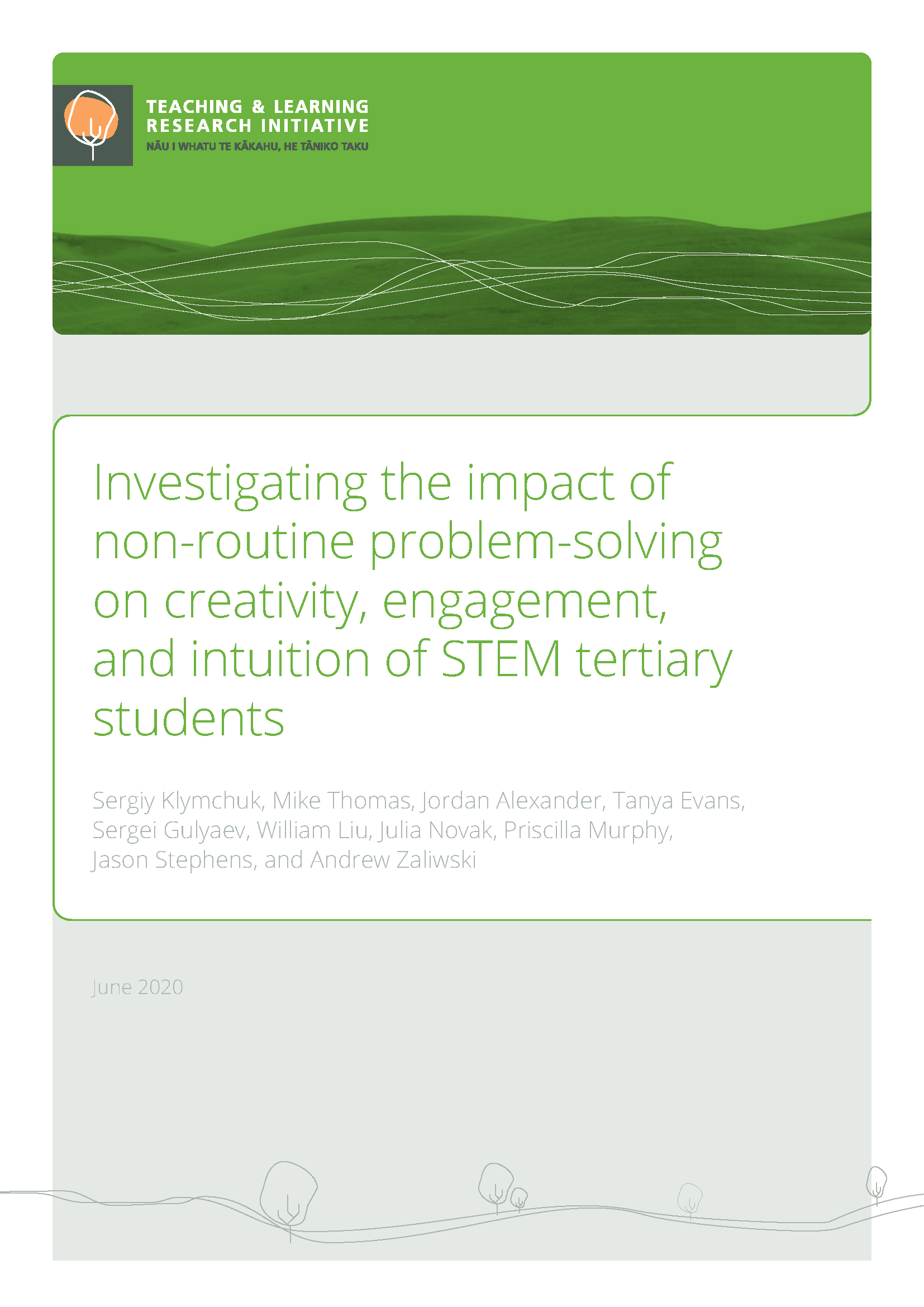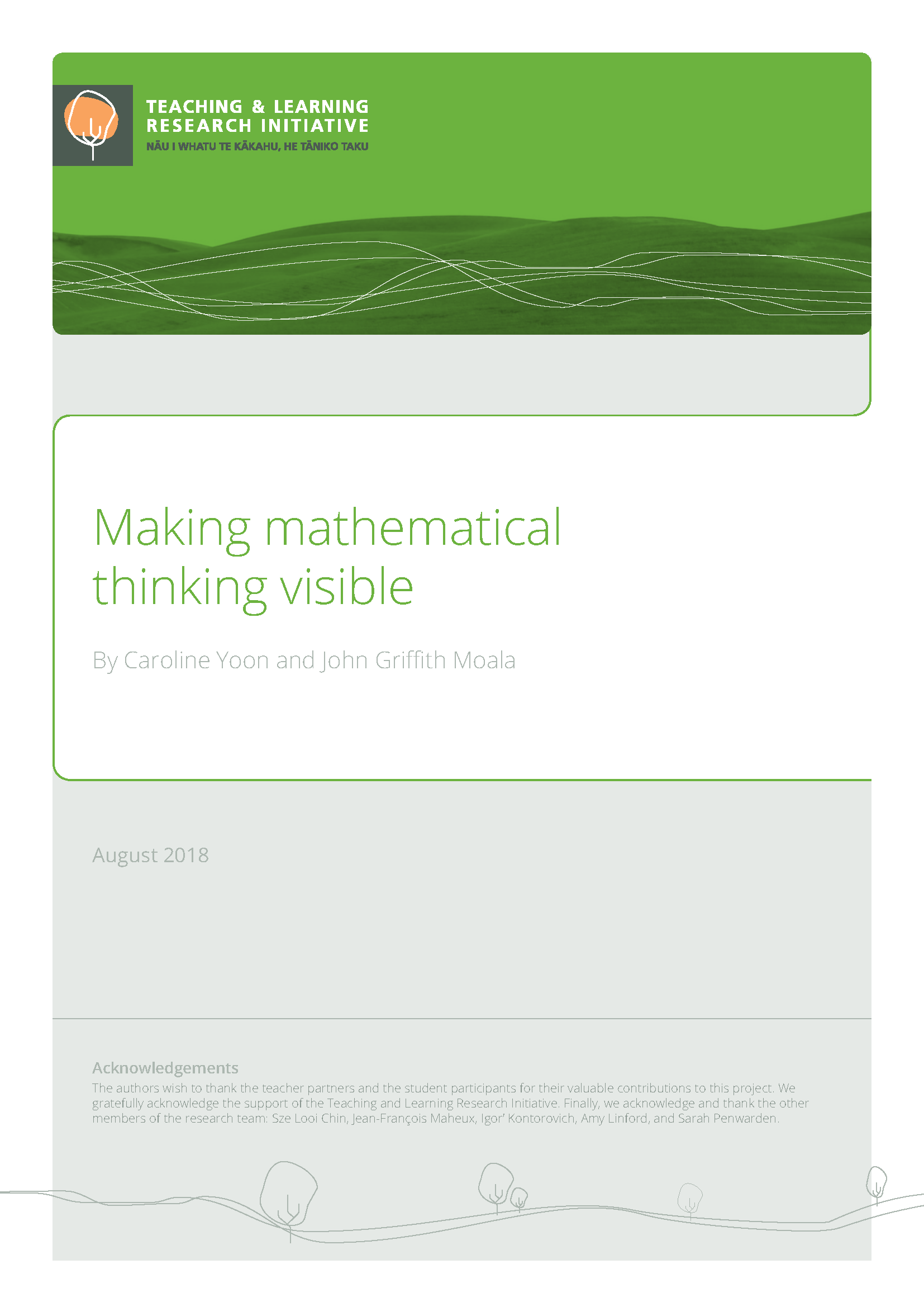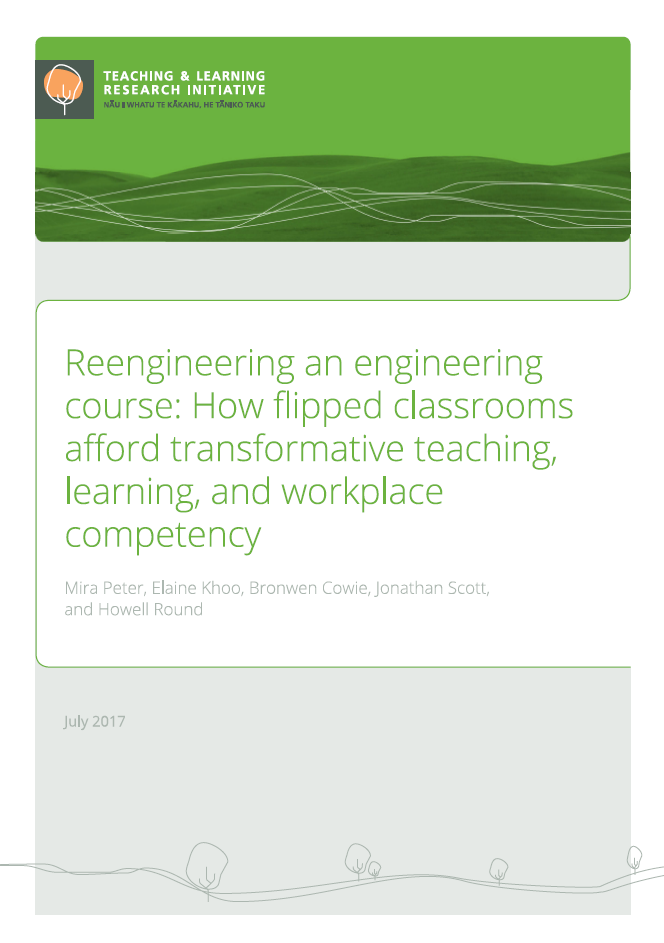
Investigating the Impact of Non-Routine Problem Solving on Creativity, Engagement and Intuition of STEM Tertiary Students
1. Introduction In 2012 the New Zealand Government identified as a priority the need to address the undersupply of students studying STEM subjects for delivering its Business Growth Agenda.[1] Low engagement and retention rates in STEM subjects contribute to the shortage of STEM graduates, producing a negative impact on the New Zealand economy. A significant number of STEM tertiary students drop out during the first year, not because the courses are too difficult but, anecdotally, because they are too dry and boring. There are specific terms to describe this, such as academic disengagement and disinterest (Blondal & Adalbjarnardottir, 2012). In addition to specific subject-based knowledge, many high-tech companies require good generic



